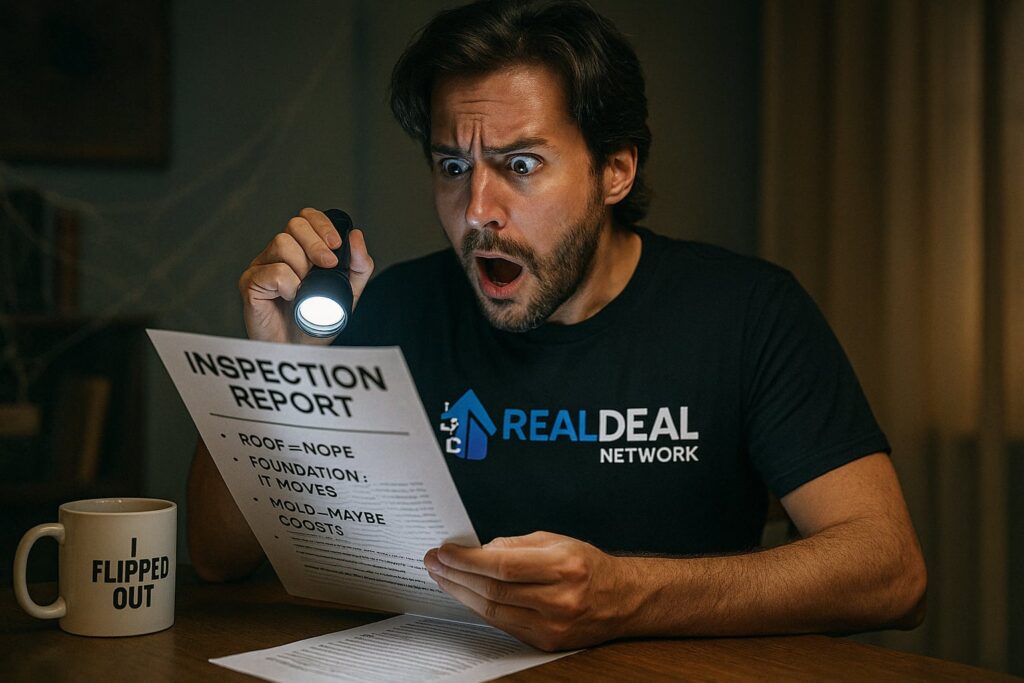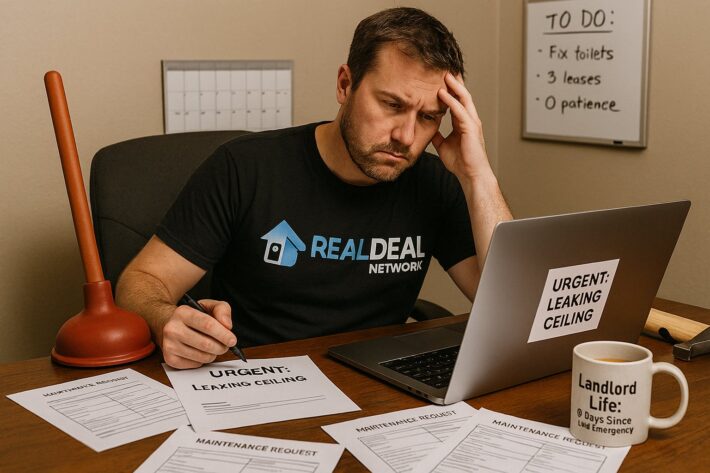Looks Good on the Outside… But So Did the Titanic

Roof = Nope. Foundation = It Moves. Mold = Maybe. Ghosts = Probably.
Why Saving a Few Bucks Now Could Cost You Big Later
At first glance, the house seemed like a deal.
The price was right, the location felt solid, and the exterior looked decent enough.
It was tempting to move forward without an inspection—after all, that’s a few hundred dollars saved, right?
Wrong.
Skipping the inspection may feel like a quick win, but it’s one of the riskiest moves you can make in real estate. That small upfront cost often protects you from huge financial setbacks later on.
What You Can’t See Will Hurt You
Just because a property looks okay on the surface doesn’t mean it’s structurally sound.
Behind that fresh coat of paint could be:
- Foundation cracks
- Termite damage
- Faulty wiring
- Or moisture buildup that leads to mold
While these issues might not be obvious, they’re incredibly expensive to fix. An inspection brings those hidden problems to light—before you close the deal.
A Few Hundred Bucks Can Save You Thousands
Let’s look at the numbers.
- A typical home inspection costs between $300–$500.
- Discovering a roof replacement after closing? That’s $10,000+.
- Hidden plumbing issues? Easily another $5,000.
- Mold remediation or foundation repair? You might be looking at $15,000 or more.
In contrast, spending a few hundred upfront is an easy decision—especially when it gives you the power to renegotiate or walk away.
You’re Not Supposed to Be the Expert
Even if you’ve walked a dozen properties, you’re still not an inspector.
These professionals are trained to look for things you’ll likely miss.
For instance, you might focus on the outdated kitchen, while they catch roof sagging or signs of water damage in the attic.
This is why having the right people on your team is crucial.
You bring the vision—they bring the deep-dive diagnostics.
Inspections Can Actually Help You Negotiate
Here’s a bonus: inspection reports can give you leverage.
When issues are discovered, you may be able to:
- Request repairs from the seller
- Get credits at closing
- Or lower your offer to reflect the needed work
In many cases, buyers actually come out ahead—because the inspection paid for itself and then some.
Real Estate is Business. Inspections Are Strategy.
Emotion should never drive investment decisions.
That “gut feeling” that everything’s fine might lead to disaster. Instead, rely on data, numbers, and professional insights.
At Real Deal Network, we help investors think like professionals.
That means taking every step seriously—including inspections.
Want to Avoid Expensive Mistakes?
👉 Join us for an Intro and learn how to evaluate properties like a pro—before you close, not after the damage is done.
Remember, flipping out after closing is way more expensive than paying for peace of mind upfront.







